This week I’m featuring an interview with Hans Hirschi, the author of Family Ties and Jonathan’s Hope.

Photo of Hans Hirschi from his website
The really great thing about social media is that every now and then you make a connection with someone you might never have met in your off-line social circles.
Hans and I are both gay authors who write about the gay world. I tend to tread in fantasy while Hans writes from a contemporary perspective. We’re close in age and maybe we would have met up through mutual friends or a writer’s group of some sort. But I live in New York City, and Hans lives in Sweden.
We struck up a friendly rapport on Twitter and Triberr. Since we both have recent releases, we decided to check out each other’s books and swap interviews on our blogs in the spirit of authors supporting each other.
At least that’s my side of the story. Hans says he thought my Twitter profile image – the cover art from Werecat – was a self-pic, which I guess explains all the flirty emoticons in his correspondence. I’m sorry to disappoint you Hans. 🙂
(Hans says: LOL, is that how you interpreted them? Good for you.)
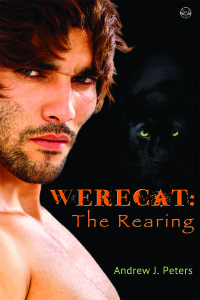
My publisher’s rendition of Werecat’s Jacks Dowd.
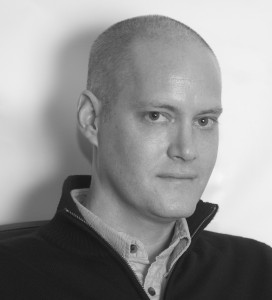
And here’s l’il ol’ me.
When I read the back cover blurb for Jonathan’s Hope, I was immediately intrigued. It’s the story of a gay teen who is abandoned in the woods, in the dead of winter, by his homophobic father.
While working as a social worker for gay teens, I met many young men with horrific stories of neglect and abuse. One sixteen-year-old I’ll call James came home from school one day to find that his parents had changed the locks on the door of their house. That was it. They were finished with him. He stayed with friends for a little while, and I helped him get into an emergency shelter where he could start working on living his life independently.
Another young man was a seventeen-year-old I’ll call Pete. Pete dialed my agency’s hotline in the middle of the night, locked in his bedroom, because his mother had being chasing him around the house with a butcher knife.
At fourteen-years-old, a boy “Diego” came into the care of our center after his single mother decided to move out of the country without her kids, leaving “Diego” with a pair of teenaged siblings who beat him every day.
Sadly, I could go on for pages. I worked with young gay men and women for eighteen years, and these situations were not uncommon. You can see why I was drawn to reading Jonathan’s Hope. I was curious to see if the book dealt with a real-life story or illuminated the tragedy of gay teen abuse from a new and interesting angle.
I was not disappointed. And I was happily surprised that beyond the portrayal of abuse, Jonathan’s Hope tells a lovely, compelling romantic story.
Andrew Peters: One of the things I enjoyed about Jonathan’s Hope was its timeless, almost fairytale quality. Most of the story takes place in a wintry, woodsy setting, and it takes brief trips to an unnamed country town and a city. Did you have a location in mind when you were writing the story?

Hans Hirschi: No, not really. It all started out with a picture I had in my mind, Dan (no name at the time), sitting in front of his fire place, contemplating. I had just finished Family Ties and thought I’d reward my future readers with a short story on my blog. Twelve thousand words later, I ended up with someone knocking on the door, and I realized there was something more to this than just a short story. I had to find out who the visitor was, why he’d be knocking at Dan’s door.
As for the forest, I imagine something along the lines of Fangorn Forest (from LOTR) or the forest in Harry Potter, minus the ents and spiders, just a huge, old forest where one could easily get lost. Funny thing is that I found the forest hanging in a gallery, while we were in the editing process. I had to buy the painting, and it’s now hanging in our bedroom, a daily reminder of Jon’s ordeal.
AP: Essentially, it’s a love story about Dan and Jonathan. When they meet Jonathan is seventeen-years-old and Dan is thirty-one – a fact that Dan is acutely aware of, and worries about. He feels like he’s crossing a taboo boundary. I felt that a bit as a reader, questioning whether or not it was “right” for Dan to pursue a sexual relationship with Jonathan. Yet I understood Dan’s attraction to Jonathan as natural, and I thought that portrayal was honest and brave. Did you have any concerns about writing that aspect of the story?
HH: Yes, I struggled immensely with that, and for the longest time I was uncertain if Dan and Jon would make it. I had no idea what my brain was up to, and how the story would ultimately end.
There were parts in me that felt strongly for keeping them together, others that felt that I had to break them up. Thing is, this part is somewhat influenced by my own life. My husband is twelve years younger than I am, and the age difference is something we come back to every now and then. It’s no issue in our present lives, but it was a while ago, when I was ready to have children, and Alex wasn’t. And it might be again, when I’m retiring and Alex still has many years to go. This last part is also reflected in the Epilogue, which was very emotional to write.
I wasn’t really worried about the sexual part of their relationship, but given that the book will be read primarily in the United States, I made sure that Jon turns eighteen before anything happens. In Europe, the laws surrounding the age of consent vary, but are normally between 13 and 18 years, and cases like that of the two girls in Florida, where the parents of the younger one had the older incarcerated would be unthinkable in (western) Europe. It is an important issue, no doubt, and I don’t think there are any definitive answers to it. I’m just glad it worked out for Dan and Jon in the end.
AP: I wonder if any part of Jonathan’s Hope was inspired by events that you experienced or witnessed in your life?
HH: Yes, there are a couple. As I mentioned, the whole discussion of the age difference between Jon and Dan, as well as between Parker and Dennis, whom I added to serve as a role model for the former, is inspired by my own life. You have no idea how often I’m mistaken to be Alex’ father. He looks young for his age, and while I don’t look ‘ancient’, it’s still something people ask us.

Oscar Wilde and Lord Alfred “Bosie” Douglas
The other “inspiration” comes from Oscar Wilde’s life. He and [his boyfriend] Bosie were attending a gang bang in London where one of the escorts died from having a bottle inserted into his rectum. I used that reference in the rape scene. It’s very sad and tragic that we have to read that Russian nazis are using the same tools to rape and humiliate young gay men in 2013. I had no idea that this scene would be so utterly contemporary.
AP: The scene you’re talking about, a flashback to Jonathan’s father and his friend being assaulted at a fraternity party, it certainly was difficult to read. I remember thinking: “How does a situation like that happen? What kind of young men are capable of that?!” I still have those questions after years of working with both survivors and perpetrators of violence.
At the same time, it occurred to me what an important moment that scene was in your story. Because I think that whether or not a young man has experienced such trauma, they are all affected by the possibility of such violence happening. Here in cosmopolitan New York City, there was a wave of over thirty physical assaults on gay men this past spring, including one murder. The presence of violence and hate speech really batters our sense of safety – all of us gay men, but especially the youngest of us. I wonder if you were conscious of that theme when writing the book?
HH: Not conscious in the political sense. But like so many others, I’ve suffered from gay bashing myself, and I’ve used some of the other experiences I’ve had to endure in my life in my other book. The real tragic part about all this is that you keep reading about it, time and time again, in any gay novel, the same issues over and over. And I keep asking myself, don’t we have anything else to talk about? Then you talk to straight friends who are completely oblivious to all this, who are very gay friendly, yet still ignorant to the plight of our existences, be it the hate-mongerers on the religious front, or politicians who try to use us as scapegoats etc. I try to use my blog for the more ‘obvious’ political statements. In the story, I was trying to explore what would’ve driven Jonathan’s father to become what he ultimately became.
AP: In your bio, you tell us that you live on an island off the coast of Sweden. That sounds rather idyllic to me. Could you tell me what it’s like? How did you end up there?
HH: I grew up in the Swiss Alps, near St. Moritz. Yet for some reason, I’ve always felt this attraction to the sea and water. When I moved to Sweden, I ended up buying a house on one of the islands off the coast. We had previously been looking for something on the mainland, when our little gem appeared for sale.
It is very peaceful, with almost no cars on the island. We have to take a boat to get home and walk from the jetty to our house. Winters are calm and serene, summers are bustling with life and tourists, as the archipelago is the #1 tourist destination of Gothenburg according to Trip Advisor. I can’t imagine ever again not living in a place where I can’t see the ocean.
AP: Jonathan’s Hope is dedicated to your son. Do you plan to share the story with him? You also say that your son rekindled your passion for writing. Can you tell me more about that?
HH: Sascha is only four months old. I’ve read to him from the book as a way to get him to sleep, but it will be years before he’s able to understand this kind of story. Thing was that I quit a job in December, and since we were expecting Sascha to be born in March I figured I’d never find another gig before that, so I volunteered to be the “stay at home dad”, while Alex would work.
I decided to use those weeks between New Year and Sascha’s birth to see if I could still write fiction, which I had done a lot as a child and youth. To my surprise, I ended up writing two novels in that time frame. Had we not been expecting Sascha, I probably wouldn’t have started writing again, but gone on to find a job instead… Imagine how grateful I am to my little boy.
AP: I also see from your bio that you have spent a lot of time in the United States as well as Europe. Many of us American gays tend to view Europe as a place that’s more progressive socially and more tolerant of gays. Do you find that to be true?
HH: It certainly looks that way when I go through my Facebook feed. I think the biggest mistake people tend to make is to bundle Europe into one mass. You guys don’t do that with regards to your own country. You see California as distinctly different from say Texas or North Dakota. The same is obviously true for Europe. The Scandinavian countries are generally more tolerant, yet Finland doesn’t have marriage equality yet and struggles with the issue. The sexually liberal French almost choked on the same, while Catholic Spain (under a social democratic government) was the world’s first country to introduce true marriage equality. In Poland or other Eastern and Southern European countries you’ll find the same arguments you’d hear from the American Family Association or Evangelical circles, although they’re Catholic or Orthodox.
So no, I think if you look at the entire continent, it’s pretty much the same.
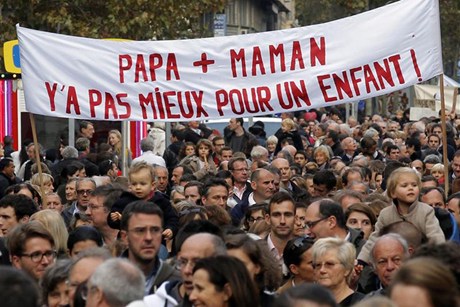
Anti-gay marriage protesters in France
AP: As I mentioned above, I’ve known of situations similar to Jonathan’s. Your story made me wonder if that kind of family abuse happens to gay teens in places like Sweden and Switzerland.
HH: I have been asking myself that same question for some time, as there are no statistics on this. We have a much smaller homeless problem in the countries you mention (and Western Europe in general), due to a bigger “state”, who will look after people before they become homeless. I’m not trying to disregard the issues we still have, but I think that volunteer organizations and the communities would immediately take kids off the street and help them, much more than what is true in the U.S. However, we find that honor killings are becoming a real issue with certain immigrant groups, affecting mostly girls hanging out with boys, but it’s not unthinkable that LGBT kids might face the same fate. And if society doesn’t know those kids were LGBT, we might not even know why they died.
I have spoken to several youths who said their parents would kill them if they came out. Whether that would truly happen or if that is just the fear we all felt beforehand, I can’t say. But luckily we don’t have thousands and thousands of LGBT youths being homeless.
AP: How has being a father impacted your writing?
HH: It plays a certain part in Family Ties where the gay couple have twins from a surrogate mother. But since I wrote both books before Sascha was born, I can’t say it did. However, in my third book, that I’m trying to write in between diaper changes and feedings (which isn’t going nearly as well as I had hoped), I am exploring fatherhood to it’s extreme, as my protagonist suffers the ultimate loss, something I think all parents worry about at some point.

Hans’ first novel Family Ties
AP: Jonathan’s Hope reminded me stylistically of the British author Neil Bartlett (Ready to Catch Him if He Should Fall). I’m curious if you’ve read any of his work and what you thought about it. If not, are there authors that have influenced your writing?
HH: I’m relieved to say that I haven’t (but I definitively will!), that way no one will be able to accuse me of plagiarism. LOL
There have been authors I love more than others, from Thomas Mann to Christopher Isherwood, who dealt with LGBT questions decades before it was politically okay. Btw, both Death in Venice and A Single Man touch upon the age difference, although from a different vintage point. But I also love straight authors such as Franz Kafka or J.D. Salinger as well individual works by others. I majored in literature, so I’ve read literally hundreds and hundreds of books through the years.
AP: While the story deals with heartbreak and human cruelty, it felt to me that everyone was redeemed in the end, even Jonathan’s abusive father. Did you worry that some readers might not feel so charitable toward the father? What made you feel like he deserved forgiveness and redemption?
HH: Jon’s father had to work hard to ‘earn’ his name… I’m not sure he’s fully redeemed, because I don’t think there is redemption for what he did. But I’ll grant you that I come from a philosophical tradition that puts ‘nurture’ above ‘nature’ and I needed to find out what drove Jonathan Sr. to become the monster he is in the book. Trust me, I don’t feel very charitable toward the man myself, but it is a well-known phenomenon that the most homophobic people often times struggle with their own homosexuality, trying to deflect attention to themselves by pointing fingers at others. In Jon’s dad, the circumstances surrounding his life were particularly tragic, and the real villains in the book, the family priest and Jon’s grandmother leave the book as vicious as they entered it.
AP: How did you and your husband Alex meet?
HH: Online, twelve years ago. Classic, right? It’s a long story.

Just some gay love courtesy of Matt Groening
AP: My husband and I met at a bar, so we may have one-upped you guys in terms of gay clichés. Are you working on another story? Can you tell me about that?
HH: Yeah, I’m working on a third novel about an architect who loses everything (literally) The book is about his journey to redemption and possibly second chances at life, love. Given that I don’t find the time to write much right now, I have a pretty good idea how the story will end, but the details won’t come to me until I sit down and finish. The style of the book is very different from the previous ones, and I’m exploring the issue of homelessness (for kids and adults) further. I’ve tried to set myself a goal to get it done so that we can publish it by Christmas.
AP: How do you get your books out to readers? What made you decide to self-publish?
HH: I was toying with the idea of finding a publisher, but there are no Swedish publishing companies that work with English fiction, certainly none who get any traction. As a foreigner, to find a good publisher in the U.S. seemed doomed (tax issues and what not, it’s complicated enough for our own company), so we decided to use our own consulting company, which also has a publishing arm for it. I might be wrong here, but at least we had the opportunity to get the book out relatively quickly.
It also has the added bonus of not having to arm wrestle with any editors over changes to the script, to add sex (to please the many m/m readers) or action or whatever. I’ve done that in the past with my nonfiction books and it wasn’t always a pleasant experience.
We are using the three big dragons, Amazon, Apple & Nook to get the books out. Initially, we’re going exclusively with Amazon to get double royalties, which works perfectly, as we still need to iron out the royalty payments for the other two, as we need a U.S. bank account, which is still not resolved. But apart from that, it’s a lot of work, doing interviews with people such as yourself, trying to get professional reviews, get into newspapers, magazines etc. I also try to spam my poor followers on Twitter and Facebook. Trust me, the marketing side of being an author is tenfold the amount of work of writing, and in the end, it’s all down to luck, say a book critic from the New York Times picking it up and liking it, or not.
AP: Well I wish you the best of luck with your books. Jonathan’s Hope certainly made me a fan, and I’m sure it will garner many others. Thanks so much for stopping by Hans!
Here’s the back cover blurb from Jonathan’s Hope, which is available in paperback and e-book from Amazon.
Abandoned to freeze to death in a winter forest by his father because of his homosexuality, Jonathan desperately struggles to survive, until he accidentally stumbles upon Dan, who owns a cabin in the woods. Dan has been fighting his own demons since the death of his lover Sean. Having retreated from big city life, he is content to live in solitude, but he never counted on meeting Jonathan. Given the dire circumstances, Dan must set his own needs aside to help Jonathan reclaim his life, but he soon finds that the ghosts of both their pasts won’t die so easily.
 Share on Facebook
Share on Facebook
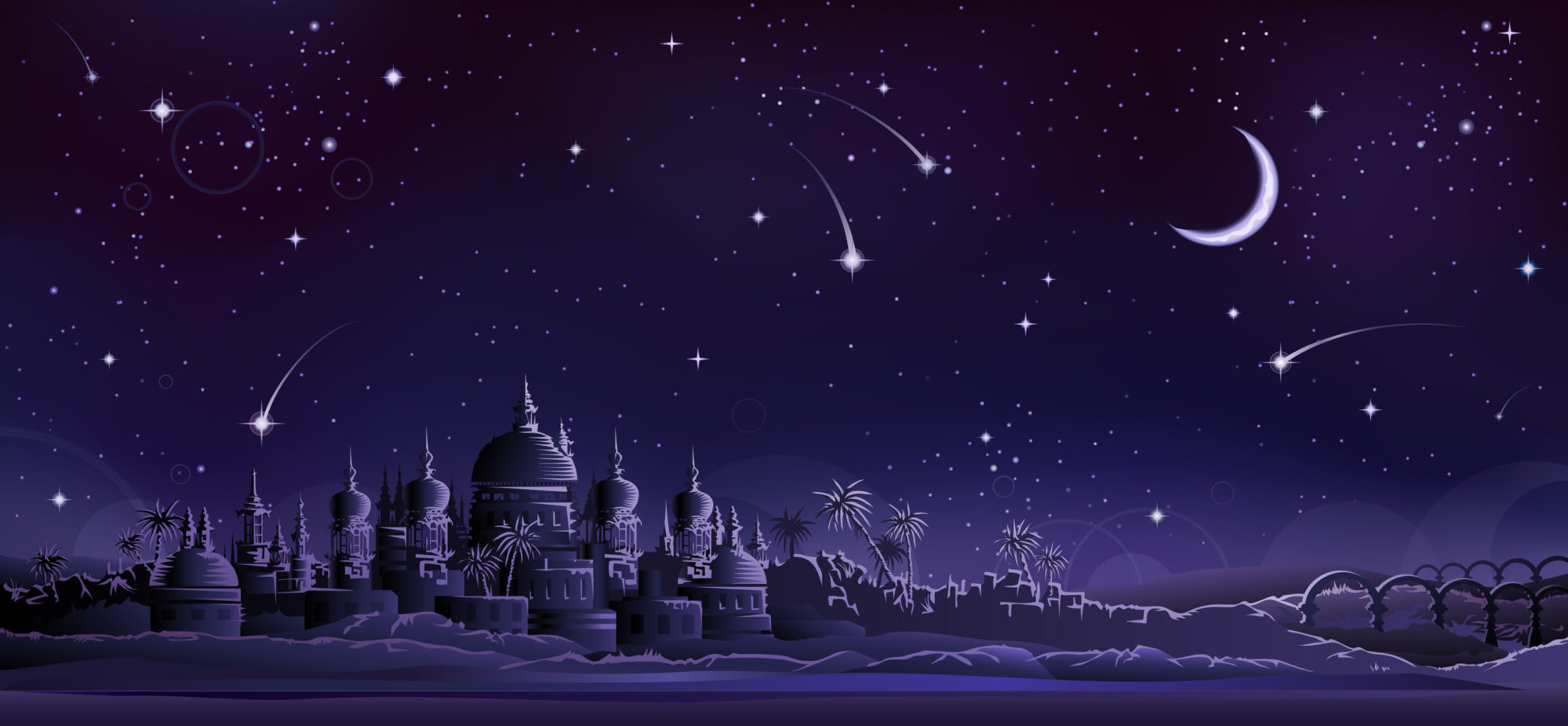
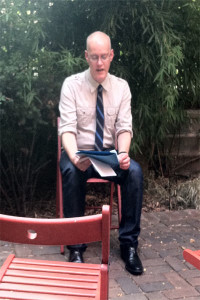
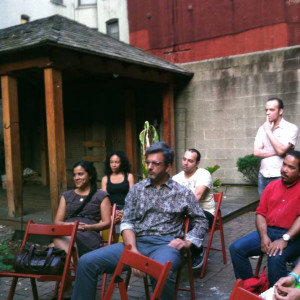
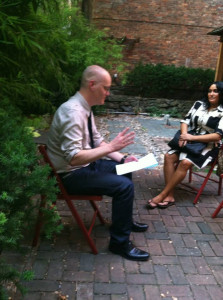
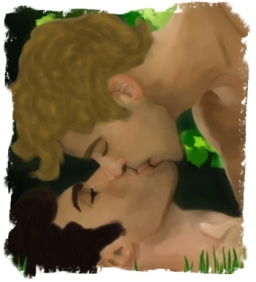
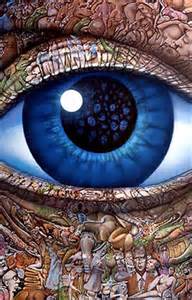 I’m really excited to be participating in Marlena Fitzpatrick’s Full Moon Paranormal Storytelling Series.
I’m really excited to be participating in Marlena Fitzpatrick’s Full Moon Paranormal Storytelling Series.







